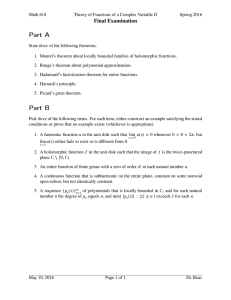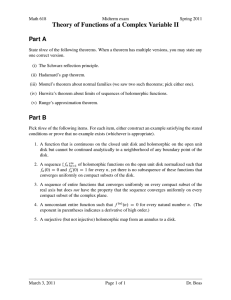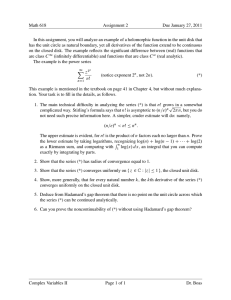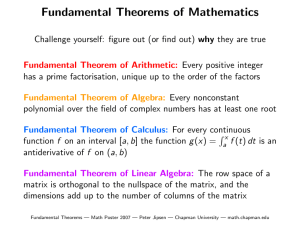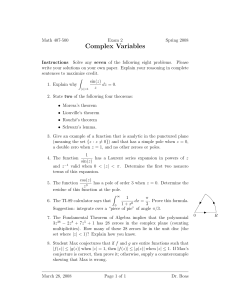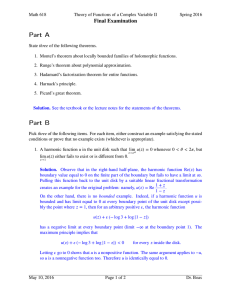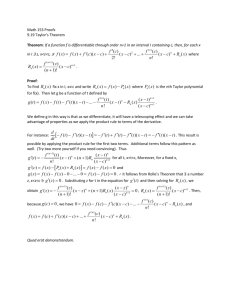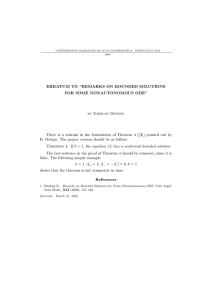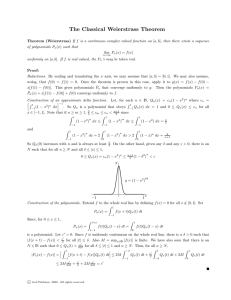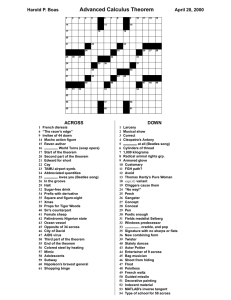Part A Midterm Examination
advertisement
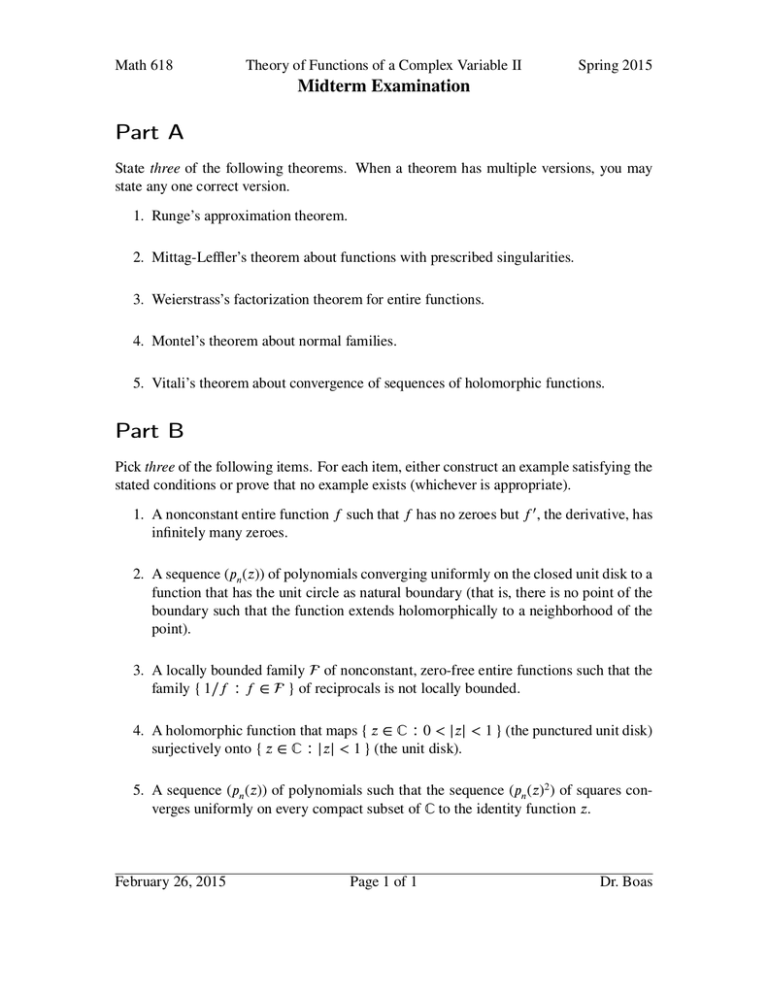
Math 618
Theory of Functions of a Complex Variable II
Spring 2015
Midterm Examination
Part A
State three of the following theorems. When a theorem has multiple versions, you may
state any one correct version.
1. Runge’s approximation theorem.
2. Mittag-Leffler’s theorem about functions with prescribed singularities.
3. Weierstrass’s factorization theorem for entire functions.
4. Montel’s theorem about normal families.
5. Vitali’s theorem about convergence of sequences of holomorphic functions.
Part B
Pick three of the following items. For each item, either construct an example satisfying the
stated conditions or prove that no example exists (whichever is appropriate).
1. A nonconstant entire function 𝑓 such that 𝑓 has no zeroes but 𝑓 ′ , the derivative, has
infinitely many zeroes.
2. A sequence (𝑝𝑛 (𝑧)) of polynomials converging uniformly on the closed unit disk to a
function that has the unit circle as natural boundary (that is, there is no point of the
boundary such that the function extends holomorphically to a neighborhood of the
point).
3. A locally bounded family of nonconstant, zero-free entire functions such that the
family { 1∕𝑓 ∶ 𝑓 ∈ } of reciprocals is not locally bounded.
4. A holomorphic function that maps { 𝑧 ∈ ℂ ∶ 0 < |𝑧| < 1 } (the punctured unit disk)
surjectively onto { 𝑧 ∈ ℂ ∶ |𝑧| < 1 } (the unit disk).
5. A sequence (𝑝𝑛 (𝑧)) of polynomials such that the sequence (𝑝𝑛 (𝑧)2 ) of squares converges uniformly on every compact subset of ℂ to the identity function 𝑧.
February 26, 2015
Page 1 of 1
Dr. Boas
